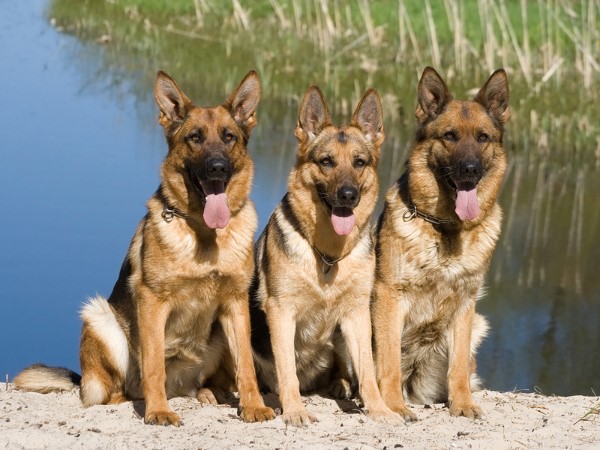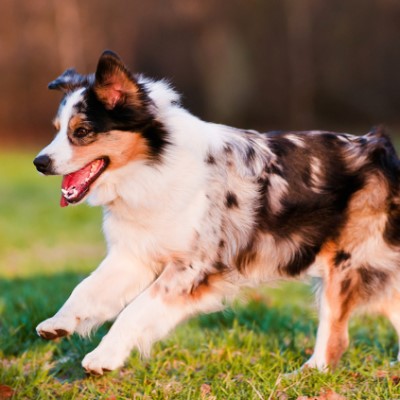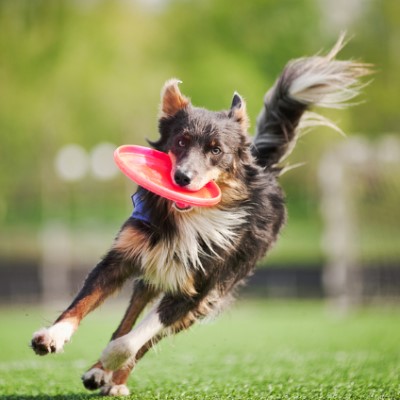Common Reasons for Surrender
As with most breeds, German Shepherds are adorable as puppies. The behaviors that are so cute during puppyhood, however, often become annoying when that puppy becomes an adult, especially if there hasn’t been any training. Lifestyle changes—a job loss, a new baby, or moving to a new home—all lead to German Shepherds losing their homes.
Pros
Loyal and social, a German Shepherd just wants to be with her people. The German Shepherd’s natural curiosity and love of activity makes her an ideal exercise partner. Training also tends to be easy with German Shepherds due to their ability to learn quickly.
Cons
A lot of hair and consistent shedding means you will need to spend time and effort grooming your German Shepherd. A large breed, German Shepherds must have moderate exercise of at least two half-an-hour walks each day and, because of their size, German Shepherds are often prone to health problems such as hip dysplasia and arthritis.
Diet
Be prepared to try several different foods with your dog. Because of their sensitive stomachs, German Shepherds should be fed a high quality food with protein. You may have to try several different brands before finding the right one for your German Shepherd. Treats should be offered in moderation. Meat or fish based treats are ideal. Many dogs also enjoy fresh vegetables such as carrots and green beans.
Exercise
German Shepherds need moderate exercise daily. A fenced-in yard is ideal for running around and expending energy. However, two half-an-hour walks a day are essential to keeping your German Shepherd happy, healthy, and tired.
Possible Health Issues
Overall a hardy breed, German Shepherds are susceptible to hip dysplasia, skill allergies, and arthritis. Many suffer from bloat, so be sure your dog’s head is elevated when he eats. Skin allergies, another common health issue, can be rectified by find the right dry food that contains sufficient protein.
Grooming
Though German Shepherds shed, they don’t require much more than a good brush every day. However, consider whether you have the time to thoroughly brush your dog every day. Be sure to bathe your dog regularly and clip his nails as needed. While grooming may take time on your part, you don’t need to take your German Shepherd to the groomer for proper care.
Training
German Shepherds have an innate ability to learn quickly, which has its up sides and down sides. On the one hand, they typically train quickly. On the other hand, they pick up the bad habits as fast as they pick up the good habits. Many German Shepherds are stubborn, so you must remain patient and provide consistent training to ensure success.
Entertainment
German Shepherds want to be on the go, so keep that in mind when considering adopting the breed. In addition to walking, German Shepherds enjoy swimming, hiking, tracking, herding, rallying, and playing ball. Many also excel at agility training. The key to a happy German Shepherd is providing him with plenty of ways to expend energy.
We want to thank German Shepherd Dog Rescue of Georgia for help with this profile.






